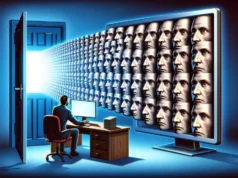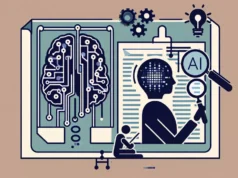In the vast and perplexing virtual expanse of social media, an array of content spanning across a myriad of subject matters – some wholesome and others misleading – grapples for attention. And standing sentinel, regulating this sheer plethora of data, are algorithms. Through optimizing the user experience, algorithms play a frontline role in curating the world’s digital content. However, alongside its positivism, this technological marvel shoulders a mammoth issue – the fostering of an algorithmic spiral of negativity on social media.
In a world that is intimately chained with social media, the algorithmic biased negativity paints a bleak picture. Users are invariably trapped in a cyclic feedback loop where receiving negative content begets online interactions that in turn, beget even more negativity.
This whirlpool of negativity engendered by algorithms has been subject to extensive research. Recent studies from the Pew Research Center found that 64% of Americans believe that fabricated negligence present online has led to a loss of confidence in the government. Likewise, a multitude of concerns ranging from depression, cyberbullying, political polarisation, and the proliferation of fake news have been attributed to this negativity loop.
Amplifying this predicament, controversy surrounding Facebook’s News Feed Algorithm escalates. It was accused of favouring clickbait and sensational content over authentic, quality content – a testament to facial proof of the spiral of negativity. But with much at stake, the question becomes: What can be done to counteract this downward spiral?
The potential solutions lie at the intersection of responsible technology, regulatory policy, and individual digital literacy. Tech companies need to reevaluate the ethical implications of their algorithms. Facebook, for instance, has pledged alterations to its News Feed Algorithm to prioritise meaningful social interactions over click-bait content. Furthermore, YouTube has modified its recommendation algorithm to reduce the prominence of potentially harmful misinformation and politically extreme content.
Such proactive changes by tech firms do signal industry’s cognizance of the problem but they are not enough. It’s clear that addressing this issue also requires a legislative and policy response. Authorities need to set up regulations to hold social media platforms accountable for the negative spiral. Some headway has been made in this regard with the draft of the Digital Services Act in the European Union, including provisions to make technology firms accountable for the content produced by their algorithms.
However, regulating algorithms is an intricate process. Questions surface around the definition of harmful and negative content and the line between regulation and censorship.
Alongside these regulatory efforts, the final piece of the puzzle is digital literacy. As the digital landscape becomes intertwined with our day-to-day lives, equipping users with the ability to discern fact from fiction and positive from negative content is crucial.
Educational institutions should integrate digital literacy into their curriculum, and tech companies themselves could provide resources to understand how social media content is curated. These skills would enable users to adequately navigate the digital landscape.
Tackling the algorithmic spiral of negativity requires a multifaceted approach but it is far from insurmountable. It is an endeavor that demands responsibility and collaboration from tech firms, regulatory bodies, and users alike. It’s an uphill climb, but we must remember what is at stake – our mental health, our social coherence, and the integrity of our democracy. As algorithms increasingly shape our world, it’s incumbent upon us all to ensure that they build bridges rather than walls.
Sources:
Pew Research Center, “64% of Americans Say Fake News Has Caused ‘A Great Deal’ of Confusion.”- 2020.
Facebook, “Bringing People Closer Together” – Jan 11, 2018.
YouTube Blog, “An update on our efforts to protect the 2020 U.S. Election” – Dec 3, 2019.
European Commission, “Proposal for a Regulation on a Single Market For Digital Services (Digital Services Act)” – Dec 20, 2020.






